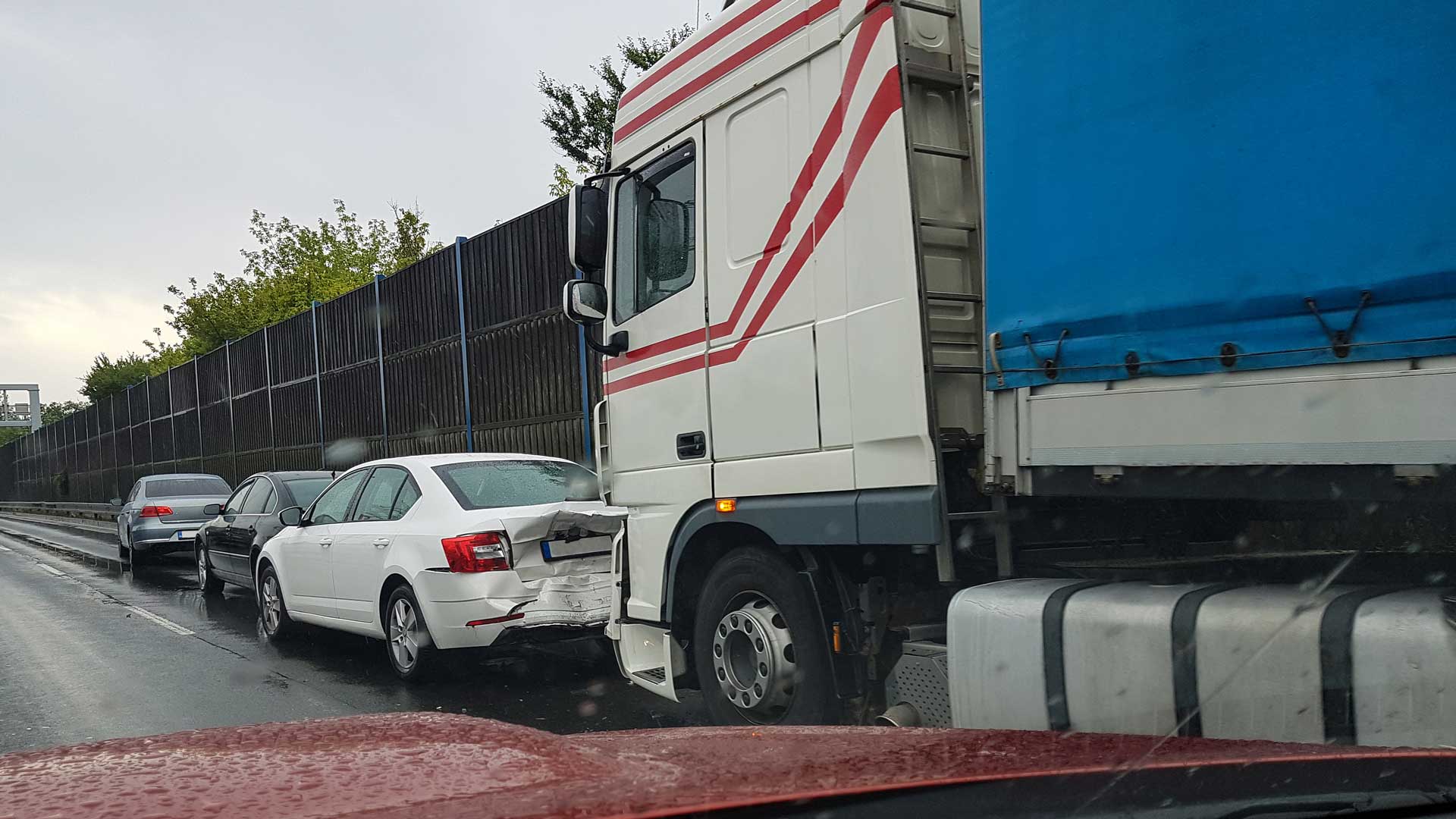Litigating Truck Accident Cases in the Greater Raleigh, NC, Area
Kurt Dixon of Miller Law Group explains this firm’s commitment to litigating truck wrecks and how this team offers the experience required for these complex cases.
Steps To Investigating a Trucking Accident
Litigating truck accident cases in Raleigh differs from litigating regular crashes and requires an attorney with extensive knowledge of commercial vehicles. The obvious difference is that at least one of the vehicles is significantly larger than the other and takes over three football fields to stop when traveling at highway speeds. A more subtle difference is that truck drivers and trucking companies are regulated by the federal government and must comply with a whole host of regulations that passenger vehicles do not. Litigating truck accident cases in Raleigh or anywhere requires knowledge of commercial vehicle regulations, and diligent investigation.
At Miller Law Group, we investigate every aspect of Raleigh trucking wrecks to determine whether the truck driver or truck company violated any state or federal government laws or regulations. The following information details the steps we take within the first 30 days to collect all the evidence necessary to build the strongest case possible for our client.
1. Interview the Client or Client’s Family
The first thing we do is conduct a thorough, in-depth interview with the client or the client’s family to find out exactly what happened. This sets the foundation for litigating a trucking accident and offers early insights into the case. Some questions we often ask include:
- What are the client’s injuries?
- Is the client still in the hospital?
- Where did the wreck occur?
- What time of day or night?
- Was weather a factor?
- Did the Highway Patrol or other law enforcement agency investigate the wreck?
- Were there any witnesses?
- Were photographs taken of the vehicles and the scene?
- How did the wreck actually happen?
The answers to these questions give us the basic facts to begin our investigation.
2. Visit the Site of the Accident
After interviewing the client or the client’s family, visiting the site of the wreck is our next priority. It is important to visit the wreck site early before conditions change and skid marks fade, signs are moved, or light poles are repaired. Doing this promptly allows us to get an accurate picture of the incident and assists us in litigating the case. We photograph everything. We also check local businesses to see if there might be video cameras that caught the wreck on tape. Seeing the site in person offers a perspective that photographs alone just can’t.
3. Send Out Evidence Preservation Letters
As soon as we know who the trucking company is and the law enforcement agency who investigated the wreck, we send out Evidence Preservation Letters by certified mail or Federal Express (so we can prove the letter was received). This step is extremely important because photographs, records, and other evidence can have a way of “disappearing” once a lawsuit is filed. If we can show that the company was on notice to preserve evidence and that the company “lost” or destroyed that evidence, a judge will inform the jury to assume the evidence was not favorable to the company. We have a list of over 10 items we expect the trucking company to preserve, which includes all photographs of the scene, pictures of vehicles involved, the truck’s “black box” information, witness statements, and dash cam videos, if the truck was equipped with this technology.
4. Obtain the Wreck Report
In North Carolina, the wreck report is known as the DMV Form 349. This is the official report of the law enforcement agency that investigated the wreck. Usually, the Highway Patrol investigates trucking wrecks in the Raleigh area. The DMV Form 349 includes a detailed analysis of how the wreck occurred and will indicate whether the truck driver was charged with a crime. The report might also list witnesses that the client was previously unaware of. Once a lawsuit is filed, the entire investigative file can be obtained from law enforcement personnel through a subpoena.
5. Hire a Collision Reconstruction Engineer
Hiring a collision reconstruction engineer is an absolute must, even if there is no question that the truck driver caused the collision. The engineer may find additional evidence to demonstrate the truck driver’s recklessness—such as speeding or driving with brakes out of alignment—that can strengthen your claim. A reconstruction engineer uses a laser to scan the scene of the crash and the vehicles involved to create a computer animation of the crash. These renderings are so realistic that unless they are told differently, jurors would believe they are actually watching a video of the crash. Needless to say, these animations are compelling tools when litigating truck accident cases in Raleigh, and they’re known to lead to larger verdicts.
6. Interview the Witnesses
Any witness to the crash must be interviewed as soon as possible because memories fade and the individual’s statement may lead to further investigation. These interviews should be videotaped to eliminate uncertainty about what the witness said or to use later at trial if necessary.
7. Obtain the 911 Tapes
Invariably, someone will have called 911 to report the wreck. Obtaining the 911 recording is important because often, the person calling is emotional and will describe what they see in vivid detail. The recording provides important information about the wreck and helps the jury “re-live” the accident to better understand the devastating and traumatic incident.
Miller Law Group in Raleigh is ready to help anyone involved in a trucking wreck navigate all the above steps. We’ll evaluate the accident as soon as possible, and certainly within the first 30 days of receiving your case. If you or a loved one has been injured by a negligent commercial vehicle driver, speak with one of our truck accident lawyers in Raleigh right away. Our staff is standing by to take action now!


